Menu

Babies are very adorable. From the moment they are born to their first steps and first ‘goo goo ga ga’s in replacement of coherent words, every minute is precious. As innocent and sweet as their sneezes and hiccups might sound, it can be worrisome when they go on and on.
Fortunately, hiccups are perfectly normal and are signs of a perfectly healthy baby. So, what exactly are hiccups? What causes them? Can they be stopped? Let’s find out.
Hiccups happen when the diaphragm, the muscle that helps you breathe, suddenly contracts. This makes your baby’s vocal cords close, resulting in a “hic” sound. This is the same way it happens in adults, too. Babies can even get hiccups before they’re born, and many pregnant people have felt their babies’ hiccups as gentle flutters in their bellies. These are known as foetal hiccups.
As earlier mentioned, hiccups are harmless. In fact, according to research, when newborns hiccup, it sends lots of signals to their brains, which might help them learn to control their breathing. Hiccups are a natural reflex for babies and usually resolve by themselves.
So, we already know hiccups take place when the diaphragms contract, but the exact cause of hiccups remains unclear. However, they can be triggered by various factors. Hiccups commonly occur in newborns following or even during feeding, amongst other things.
Babies can inadvertently swallow air while breastfeeding or bottle-feeding, especially if they have a poor latch or if the bottle nipple allows too much air to enter. This swallowed air can accumulate in the stomach and lead to hiccups as the body tries to expel it.
Feeding too quickly or giving your baby more milk than they can comfortably handle can overwhelm their digestive system. This can result in the stomach becoming distended, putting pressure on the diaphragm and triggering hiccups.
Babies’ bodies are sensitive to temperature changes, and abrupt shifts in their environment can sometimes trigger hiccups. Moving from a warm environment to a cooler one or vice versa may momentarily confuse the body’s thermoregulation mechanisms, leading to hiccups as a reflexive response.
Babies, like adults, can experience strong emotions such as excitement or agitation. These heightened emotional states can occasionally stimulate the nervous system in a way that triggers hiccups. The sudden surge of adrenaline or other stress hormones may play a role in this response.
Hiccups can sometimes be a symptom of Gastroesophageal Reflux Disease (GERD) in infants. GERD occurs when stomach acid flows back up into the oesophagus, causing irritation. The presence of acid in the oesophagus can stimulate the diaphragm, resulting in hiccups.
Babies have immature nervous systems that are still developing after birth. As a result, their reflexes, including the hiccup reflex, may be more easily triggered. Hiccups in infants are considered a normal part of neurological development and tend to reduce as the baby grows older and their nervous system matures.
Anything that irritates the diaphragm can cause hiccups in babies. This includes pressure from a full stomach, which can occur if you lay your baby down on their stomach too soon after feeding. The pressure on the diaphragm from the stomach contents may lead to hiccups as the body tries to adjust to the discomfort.
Babies can inadvertently swallow air while breastfeeding or bottle-feeding, especially if they have a poor latch or if the bottle nipple allows too much air to enter. This swallowed air can accumulate in the stomach and lead to hiccups as the body tries to expel it.
Feeding too quickly or giving your baby more milk than they can comfortably handle can overwhelm their digestive system. This can result in the stomach becoming distended, putting pressure on the diaphragm and triggering hiccups.
Babies’ bodies are sensitive to temperature changes, and abrupt shifts in their environment can sometimes trigger hiccups. Moving from a warm environment to a cooler one or vice versa may momentarily confuse the body’s thermoregulation mechanisms, leading to hiccups as a reflexive response.
Babies, like adults, can experience strong emotions such as excitement or agitation. These heightened emotional states can occasionally stimulate the nervous system in a way that triggers hiccups. The sudden surge of adrenaline or other stress hormones may play a role in this response.
Hiccups can sometimes be a symptom of Gastroesophageal Reflux Disease (GERD) in infants. GERD occurs when stomach acid flows back up into the oesophagus, causing irritation. The presence of acid in the oesophagus can stimulate the diaphragm, resulting in hiccups.
Babies have immature nervous systems that are still developing after birth. As a result, their reflexes, including the hiccup reflex, may be more easily triggered. Hiccups in infants are considered a normal part of neurological development and tend to reduce as the baby grows older and their nervous system matures.
Anything that irritates the diaphragm can cause hiccups in babies. This includes pressure from a full stomach, which can occur if you lay your baby down on their stomach too soon after feeding. The pressure on the diaphragm from the stomach contents may lead to hiccups as the body tries to adjust to the discomfort.
Babies often aren’t bothered by their hiccups and can keep eating and sleeping as usual. Normally, hiccups go away by themselves within a few minutes, so you usually don’t need to do anything medically. However, if you’re worried about your baby’s hiccups, there are some simple strategies you can try to ease them sooner or even stop them from happening in the first place.
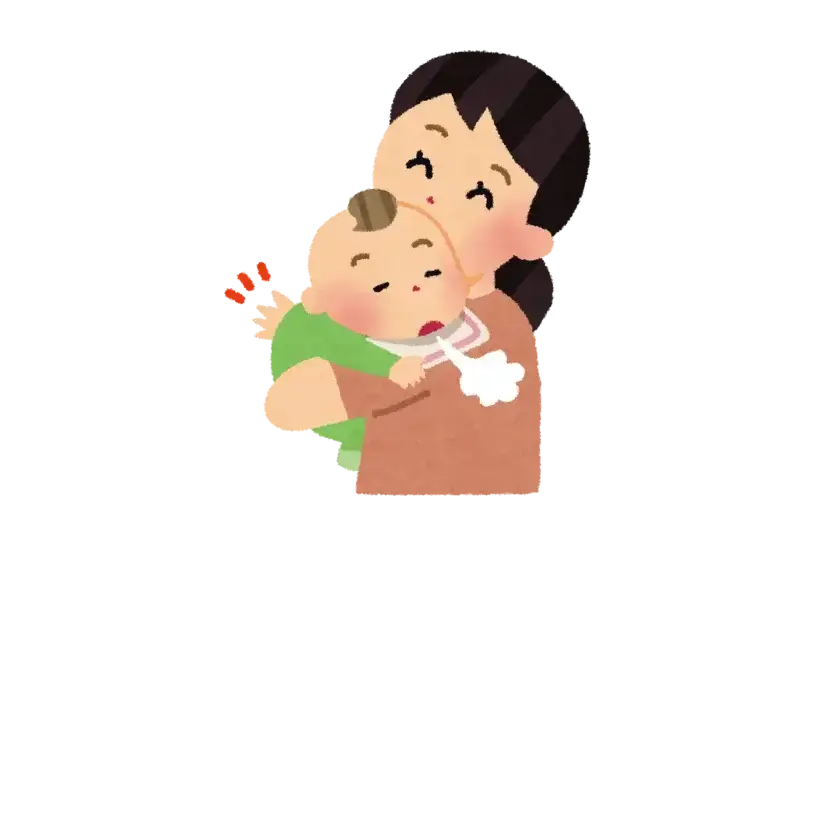
This is essential because excess gas can build up in your baby’s stomach during feeding, leading to discomfort and potentially hiccups. By holding your baby upright and gently patting or rubbing their back, you can help release trapped air, easing their discomfort and reducing the likelihood of hiccups.
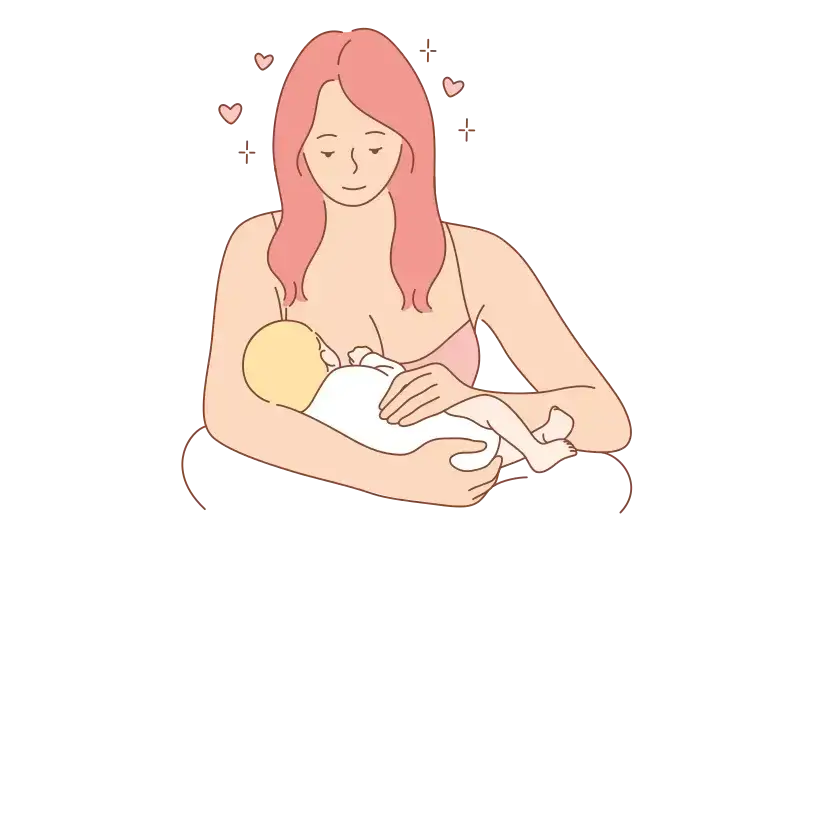
Rapid feeding can sometimes lead to hiccups, as it may cause your baby to swallow more air along with their milk or formula. Slowing down the pace of feeding allows your baby to swallow more efficiently and minimises the chances of excess air intake, thereby decreasing the likelihood of hiccups.
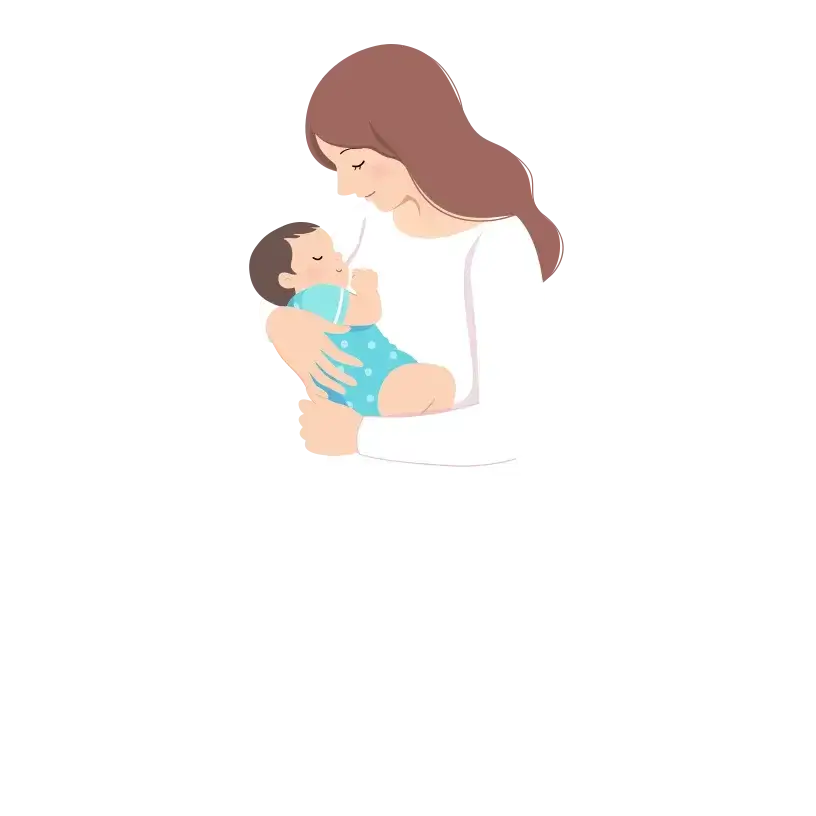
Feeding your baby before it becomes excessively hungry and agitated is important for several reasons. When babies are overly hungry, they may feed more vigorously, increasing the chances of swallowing air and developing hiccups. Additionally, feeding an agitated baby can lead to rough milk or formula intake, which may irritate the oesophagus and trigger hiccups.
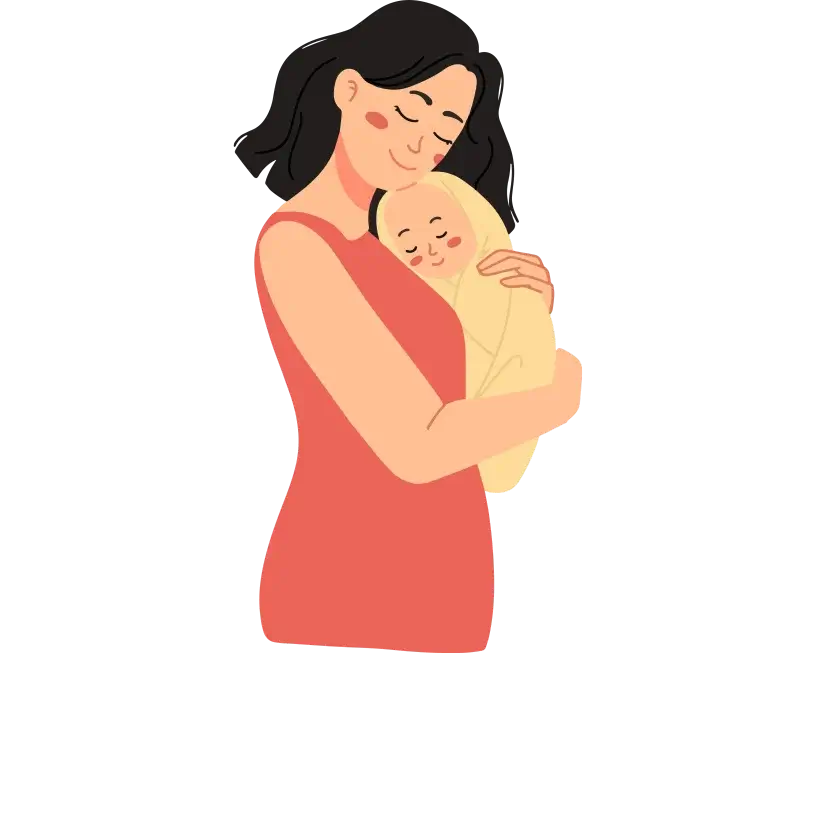
Keeping your baby upright after feeding helps gravity assist in the digestion process. This position can prevent stomach contents from flowing back up into the oesophagus, reducing the likelihood of hiccups and also minimising the risk of reflux.
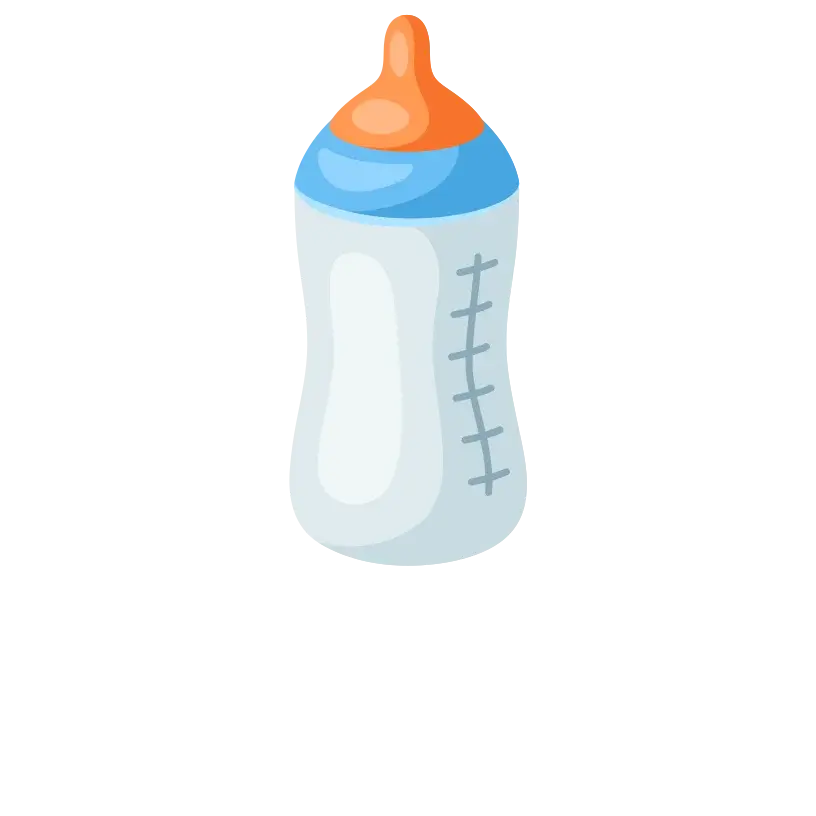
Before feeding your baby with a bottle, it’s important to ensure that the nipple is filled with milk and free of excess air. Bottles with improper nipple filling or air bubbles can lead to excessive air intake during feeding, which can exacerbate hiccups.
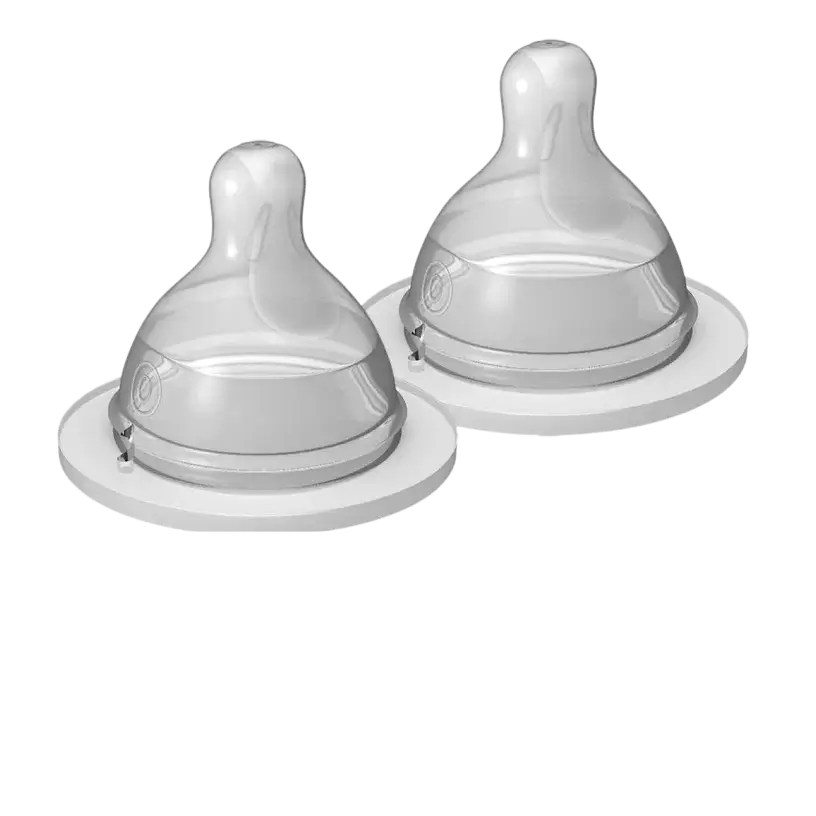
Selecting a bottle nipple with an appropriate flow rate for your baby’s age is crucial. Nipple sizes that are too fast may cause your baby to gulp air along with the milk, increasing the likelihood of hiccups. Conversely, nipples that are too slow may frustrate your baby, leading to more vigorous sucking and potential air intake.
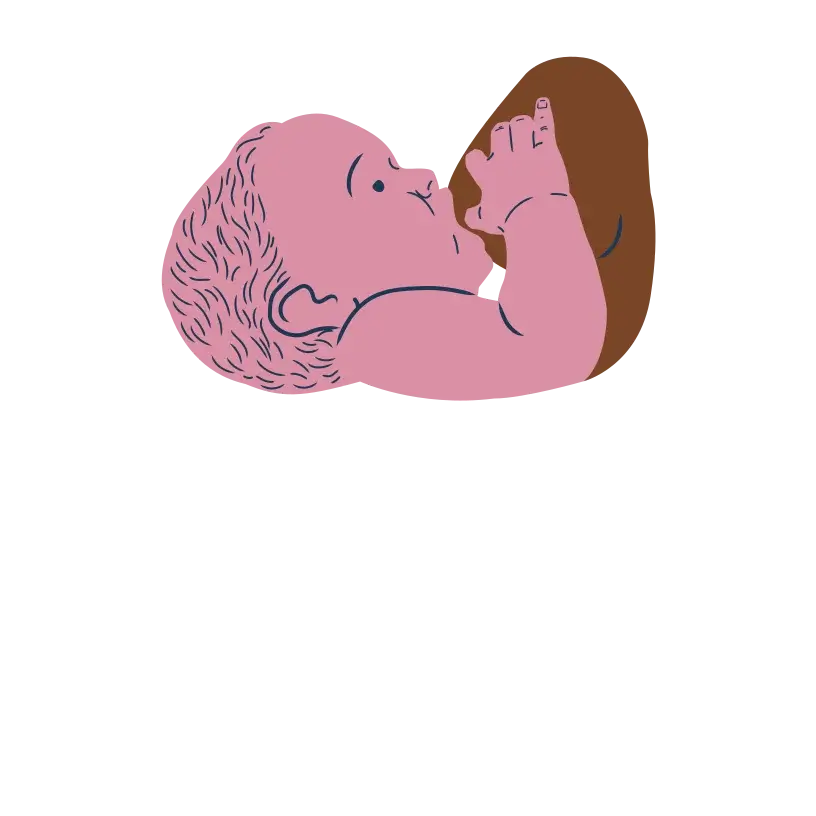
For breastfeeding mothers, ensuring that your baby achieves a proper latch over the entire nipple is vital for effective feeding and may help prevent hiccups. A good latch ensures that your baby can efficiently extract milk without swallowing excess air.
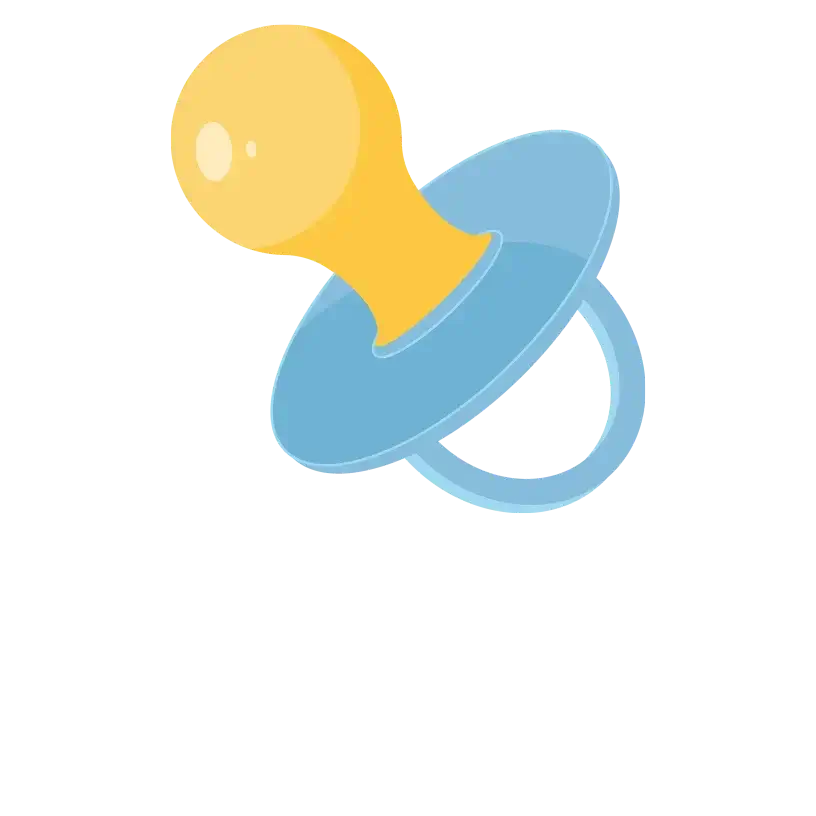
This helps to stop hiccups by soothing the baby and distracting them. The sucking motion calms the diaphragm, reducing hiccups. It’s a gentle solution that comforts the baby and creates a reassuring routine. Just make sure the pacifier is clean and supervise its use.
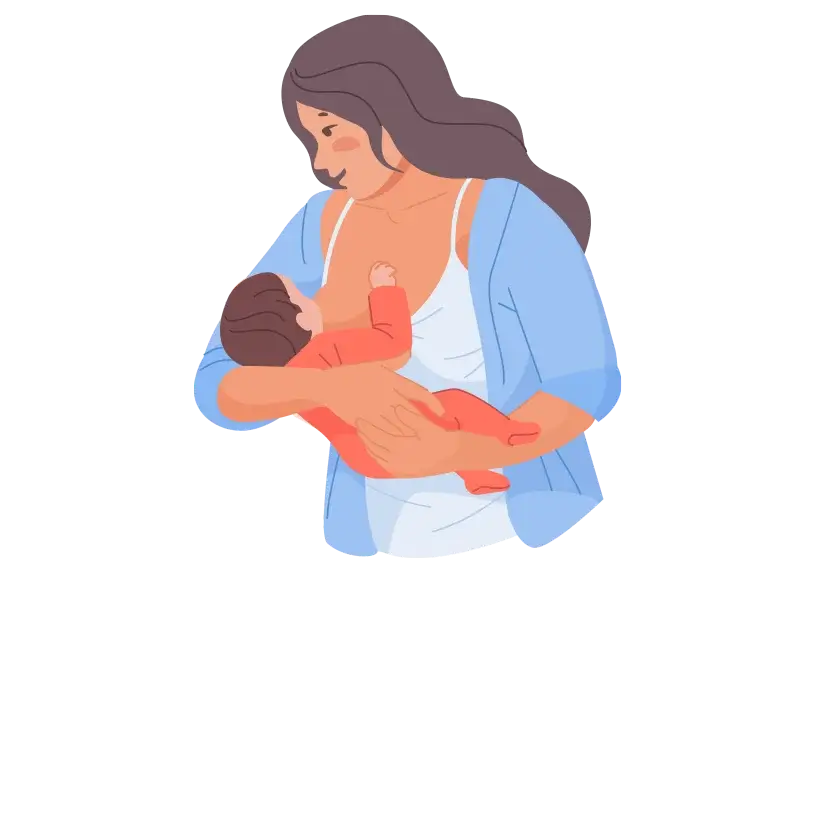
It’s important to remember that hiccups are common in babies, especially those under 1 year old, and they often stop on their own within 5 to 10 minutes. If the hiccups aren’t bothering your baby and they’re otherwise comfortable, it’s perfectly fine to simply let them resolve naturally.

This is essential because excess gas can build up in your baby’s stomach during feeding, leading to discomfort and potentially hiccups. By holding your baby upright and gently patting or rubbing their back, you can help release trapped air, easing their discomfort and reducing the likelihood of hiccups.

Rapid feeding can sometimes lead to hiccups, as it may cause your baby to swallow more air along with their milk or formula. Slowing down the pace of feeding allows your baby to swallow more efficiently and minimises the chances of excess air intake, thereby decreasing the likelihood of hiccups.

Feeding your baby before it becomes excessively hungry and agitated is important for several reasons. When babies are overly hungry, they may feed more vigorously, increasing the chances of swallowing air and developing hiccups. Additionally, feeding an agitated baby can lead to rough milk or formula intake, which may irritate the oesophagus and trigger hiccups.

Keeping your baby upright after feeding helps gravity assist in the digestion process. This position can prevent stomach contents from flowing back up into the oesophagus, reducing the likelihood of hiccups and also minimising the risk of reflux.

Before feeding your baby with a bottle, it’s important to ensure that the nipple is filled with milk and free of excess air. Bottles with improper nipple filling or air bubbles can lead to excessive air intake during feeding, which can exacerbate hiccups.

Selecting a bottle nipple with an appropriate flow rate for your baby’s age is crucial. Nipple sizes that are too fast may cause your baby to gulp air along with the milk, increasing the likelihood of hiccups. Conversely, nipples that are too slow may frustrate your baby, leading to more vigorous sucking and potential air intake.

For breastfeeding mothers, ensuring that your baby achieves a proper latch over the entire nipple is vital for effective feeding and may help prevent hiccups. A good latch ensures that your baby can efficiently extract milk without swallowing excess air.

This helps to stop hiccups by soothing the baby and distracting them. The sucking motion calms the diaphragm, reducing hiccups. It’s a gentle solution that comforts the baby and creates a reassuring routine. Just make sure the pacifier is clean and supervise its use.

It’s important to remember that hiccups are common in babies, especially those under 1 year old, and they often stop on their own within 5 to 10 minutes. If the hiccups aren’t bothering your baby and they’re otherwise comfortable, it’s perfectly fine to simply let them resolve naturally.
When it comes to treating hiccups in babies, it’s important to be cautious and avoid methods that may harm them. Safe options like breast milk or formula are the best choices for soothing your baby’s hiccups without any potential harm. Many remedies used for adults can be risky for infants and are not recommended.
If your baby frequently gets hiccups, especially if they seem upset or agitated, it’s a good idea to consult a doctor. It could indicate other health concerns. Additionally, seek medical advice if:
Normally, hiccups don’t bother babies, but they can sometimes signal Gastroesophageal Reflux Disease (GERD). As mentioned, GERD occurs when stomach acid flows back up into the oesophagus. If your baby has GERD, hiccups won’t be the only symptom. Babies with reflux may also exhibit signs such as:
If you notice these signs, discuss with your doctor whether your baby might have reflux and how to manage it.
Baby hiccups typically last for a few minutes and resolve on their own without the need for medical intervention. However, if hiccups persist for an extended period or occur frequently, it’s advisable to consult a healthcare professional.
While hiccups are frequent when feeding, you may try to prevent them by burping your baby, establishing a healthy latch for breastfeeding, and using the appropriate bottle nipple size to reduce air intake.
Occasional hiccups after eating are common and rarely cause concern. However, if hiccups persist after every feeding or are accompanied by other symptoms, it is suggested that you visit a healthcare expert.
While hiccups are normally harmless, they might be a sign of underlying problems such as GERD (Gastroesophageal Reflux Disease) if they continue or are accompanied by other symptoms such as coughing, spitting up, or irritation. Consulting a doctor can help establish whether additional assessment is required.
Baby hiccups typically last for a few minutes and resolve on their own without the need for medical intervention. However, if hiccups persist for an extended period or occur frequently, it’s advisable to consult a healthcare professional.
While hiccups are frequent when feeding, you may try to prevent them by burping your baby, establishing a healthy latch for breastfeeding, and using the appropriate bottle nipple size to reduce air intake.
Occasional hiccups after eating are common and rarely cause concern. However, if hiccups persist after every feeding or are accompanied by other symptoms, it is suggested that you visit a healthcare expert.
While hiccups are normally harmless, they might be a sign of underlying problems such as GERD (Gastroesophageal Reflux Disease) if they continue or are accompanied by other symptoms such as coughing, spitting up, or irritation. Consulting a doctor can help establish whether additional assessment is required.
1. Adhisivam B. Is gripe water baby-friendly? J Pharmacol Pharmacother. 2012 Apr;3(2):207-8. doi: 10.4103/0976-500X.95544. PMID: 22629105; PMCID: PMC3356971.
2. Burgess, Lana. “How to stop hiccups in newborns.” Medical News Today. December 21, 2023.
3. Cleveland Clinic. “Here’s What to Do When Your Baby Has the Hiccups.” March, 2021.
4. Definition and facts for GER & GERD in infants. (2020).
5. Hosoya R, et al. Analysis of factors associated with hiccups using the FAERS database.Pharmaceuticals.2022;doi:10.3390/ph15010027.
6. Li A, et al. Intractable hiccups as a rare gastrointestinal manifestation in severe endocrine and metabolic crisis: Case report and review of the literature. Therapeutic Advances in Endocrinology and Metabolism. 2020; doi:10.1177/2042018820934307.
7. MedlinePlus.“Hiccups.”March,2020.
8. National Institute of Diabetes and Digestive and Kidney Diseases (NIDDK). “Acid Reflux(GER & GERD) in Infants.”2020.
9. Nemours Children’s Health. “What Causes Hiccups?” The Nemours Foundation.
10. Seifi A, et al. What puts the ‘hic’ into hiccups? BMJ Open Gastroenterology. 2022; doi:10.1136/bmjgast-2022-000918.
11. UCL news. “Newborn baby hiccups could be key to brain development.” November, 2019.
12. Wells, Diana. “How Can I Cure My Newborn’s Hiccups?” Healthline. April 24, 2023.
13. WebMD. “What to Do If Your Baby Has Hiccups.” September 2, 2023.
© Mindsmaking 2024